Corrie Mckeague inquest coroner airs concerns over bins
- Published
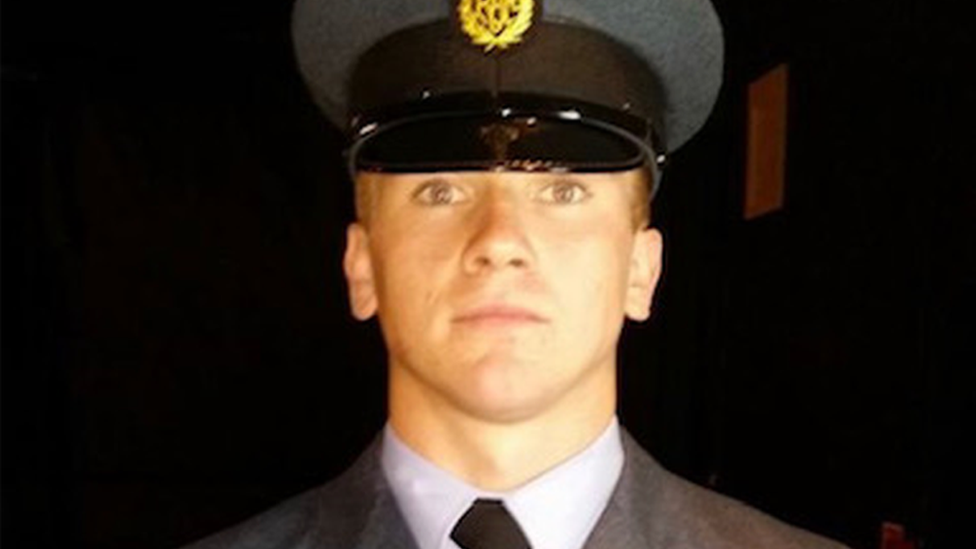
Corrie Mckeague was based at RAF Honington in Suffolk
A coroner has voiced concerns about bin safety after an inquest concluded an airman died after climbing into a commercial waste container.
Corrie Mckeague, from Dunfermline in Fife, was 23 when he disappeared in September 2016 after a night out in Bury St Edmunds, Suffolk.
An inquest in March concluded he died after he got into a commercial bin which was tipped into a waste lorry.
The Suffolk coroner's concerns included an "ineffective search of the bin".
The jury inquest into the death of Mr Mckeague, who was stationed at RAF Honington, heard he had slept in bins before the night of his disappearance.
He had also slept under bin bags on a previous night out, using them "like a blanket", and was a "heavy sleeper" when drunk, the hearing was told.
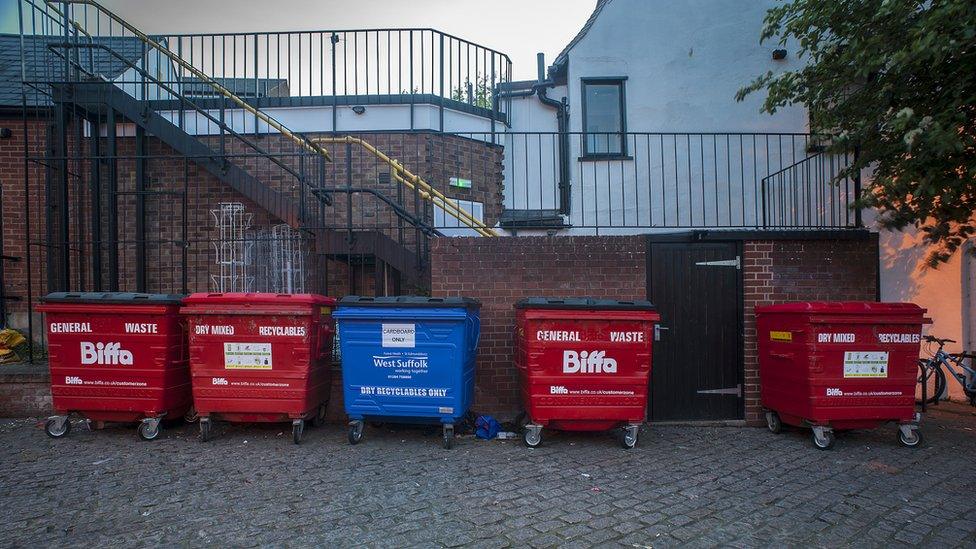
He was captured heading towards a bin loading area behind some shops, including Greggs, in Bury St Edmunds town centre
In his report - aimed at preventing future deaths - coroner Nigel Parsley raised concerns about the risks posed to those who climbed into bins.
He said he was concerned about "ineffective bin locks", bin lorry drivers not "having the means to search the bin thoroughly or safely" and "poor visibility through the viewing window on the lorry".
His report has been sent to the British Standards Institute, The Container Handling Equipment Manufacturers Association, Dennis Eagle Ltd, a manufacturer of refuse collection trucks, and Biffa Waste Services Ltd.
Biffa previously said the incident highlighted the "waste industry-wide issue of people sleeping in waste containers".
In his report, Mr Parsley described the locks on the bin as "not robust" and said "due to their design the locks were also frequently broken".
The coroner said if stronger locks were fitted, the number of reported incidents of people in bins was likely to be reduced.
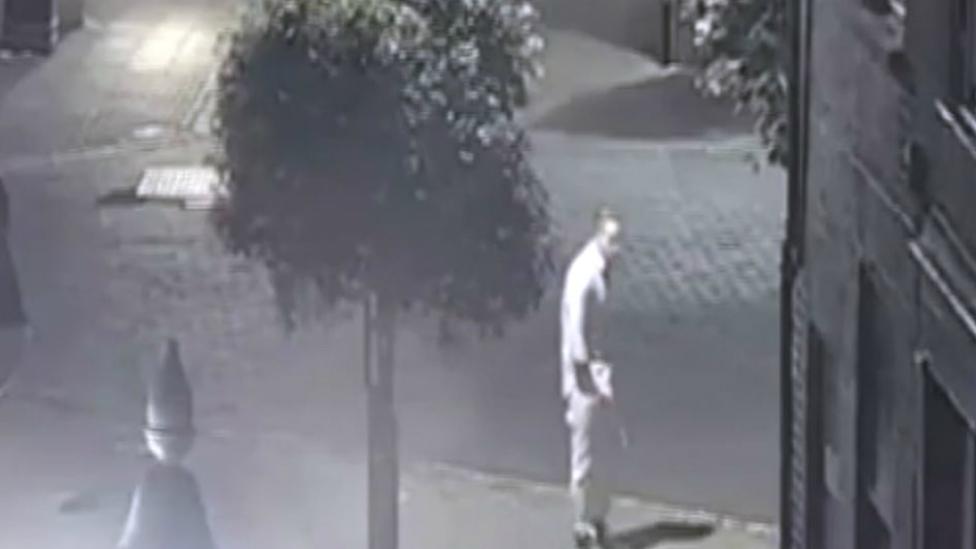
Corrie Mckeague, who was based at RAF Honington near Bury St Edmunds, was last seen wearing light-coloured trousers and a pink shirt
He said it was "physically impossible to undertake a check of the hopper mechanism on the Biffa lorry as the viewing aperture window is too high".
The viewing window on the six-year-old vehicle in question had also become opaque, he said.
Craig Knightley, from the solicitors representing Mr Mckeague's family, said they hoped the "raising of these ongoing concerns, at the very highest level, will lead to changes within the industry that will hopefully further reduce the serious risk to people in bins".

Find BBC News: East of England on Facebook, external, Instagram, external and Twitter, external. If you have a story suggestion email eastofenglandnews@bbc.co.uk, external
- Published22 March 2022

- Published18 March 2022

- Published14 March 2022
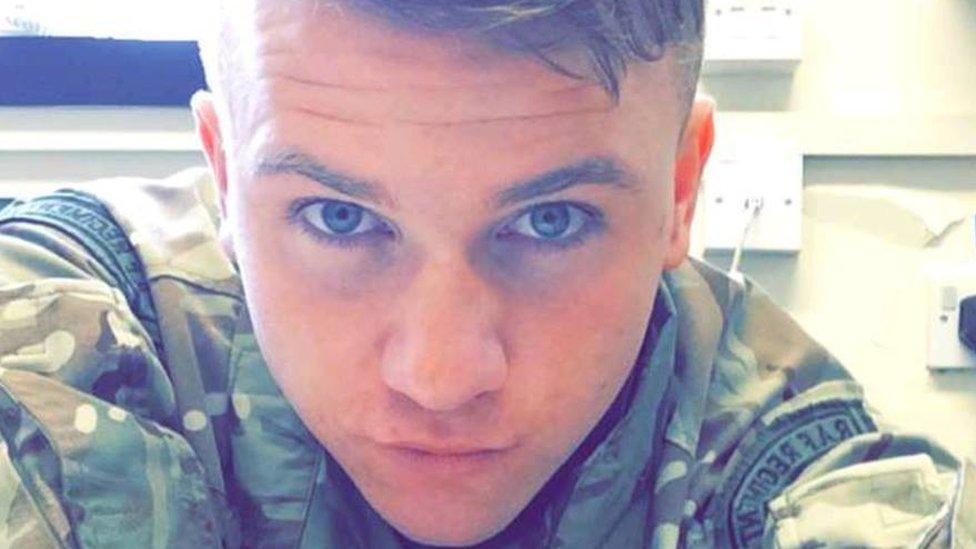
- Published8 March 2022
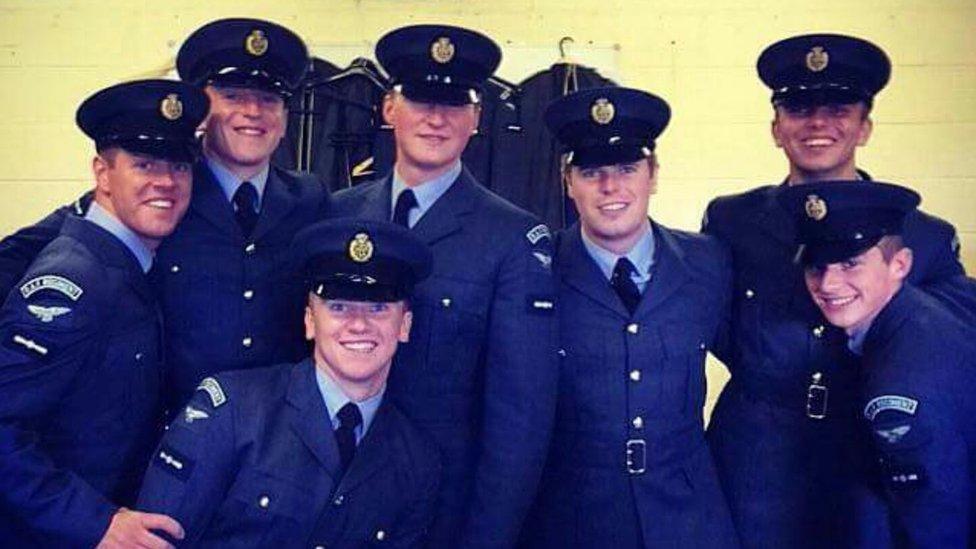
- Published7 March 2022
